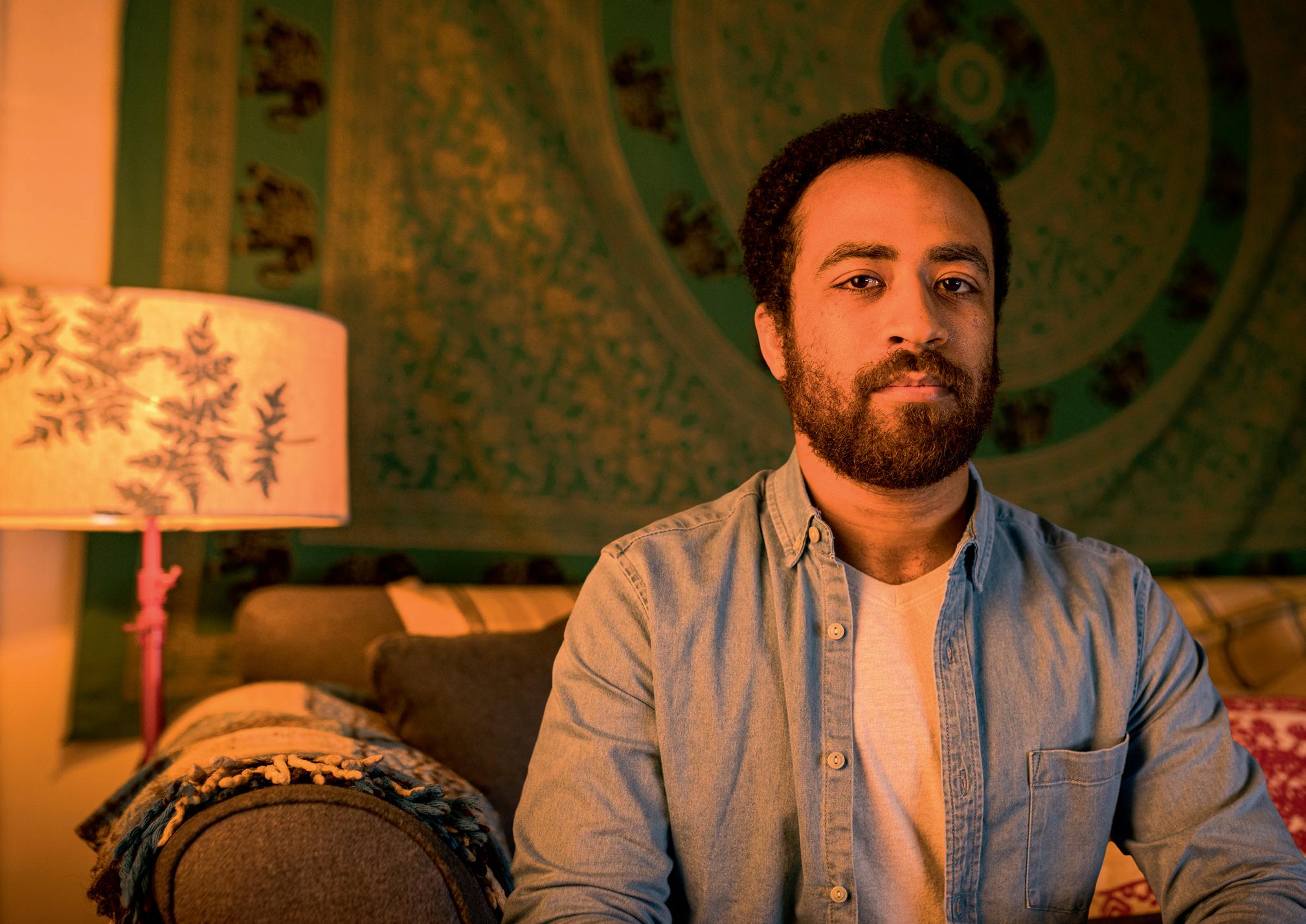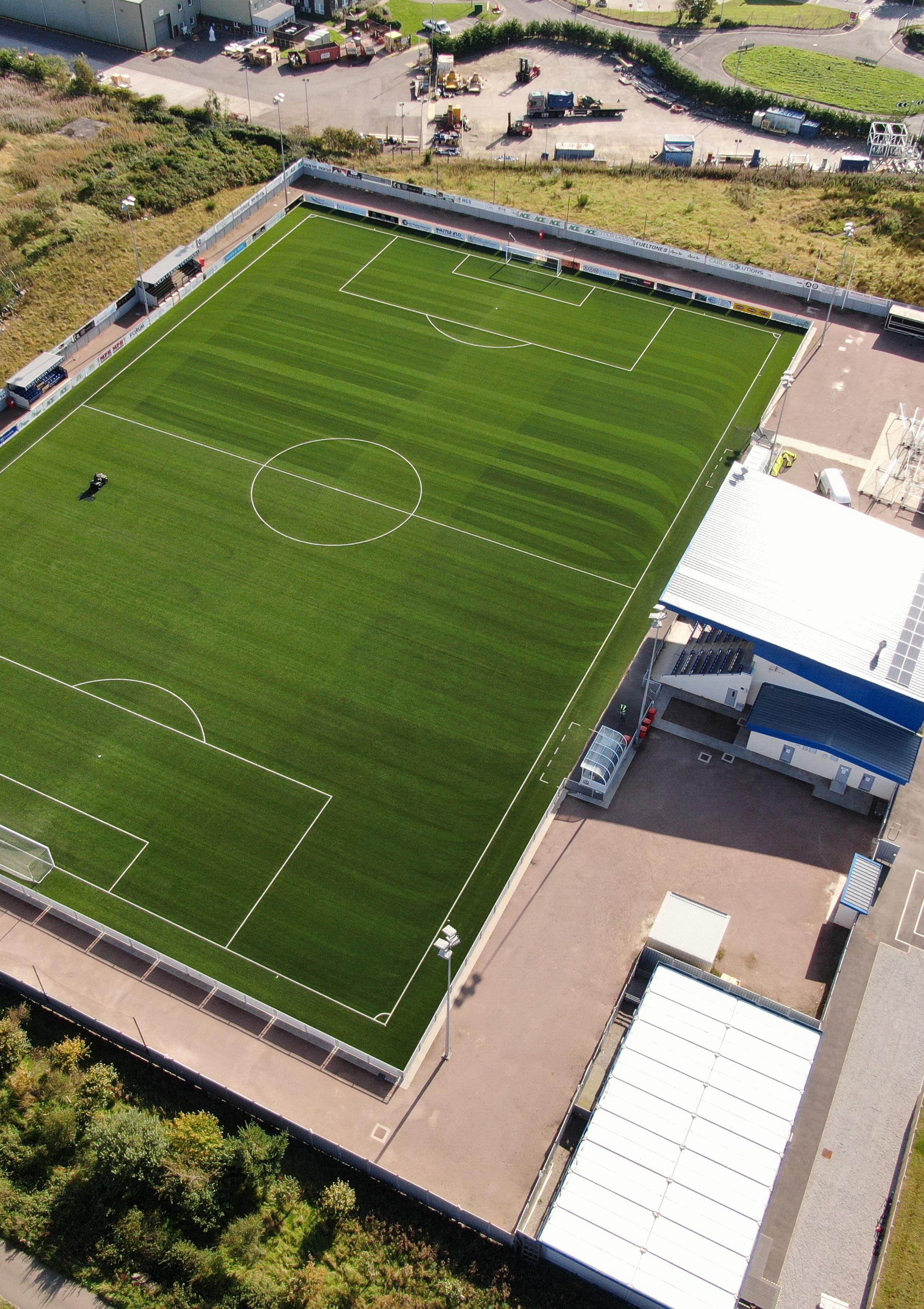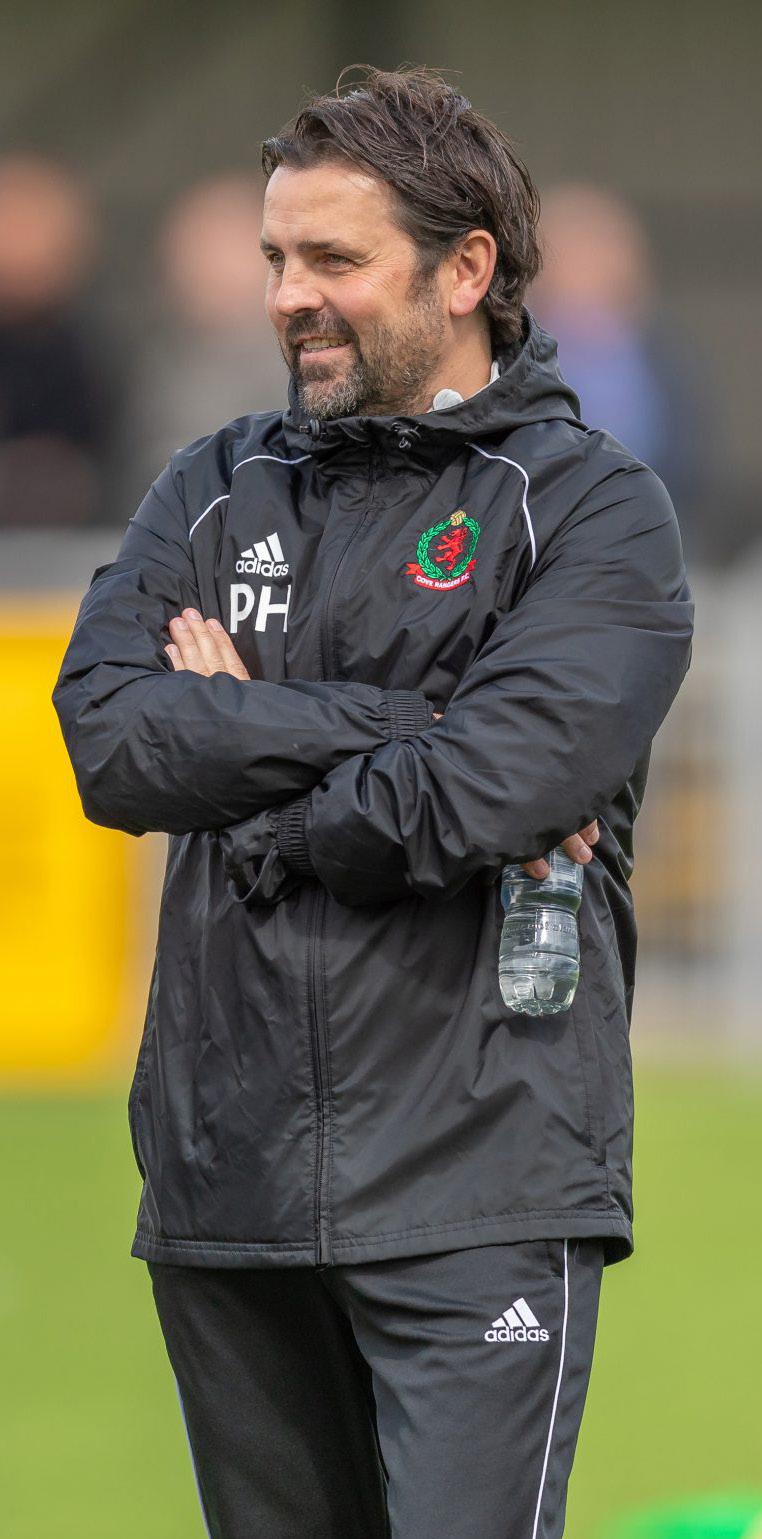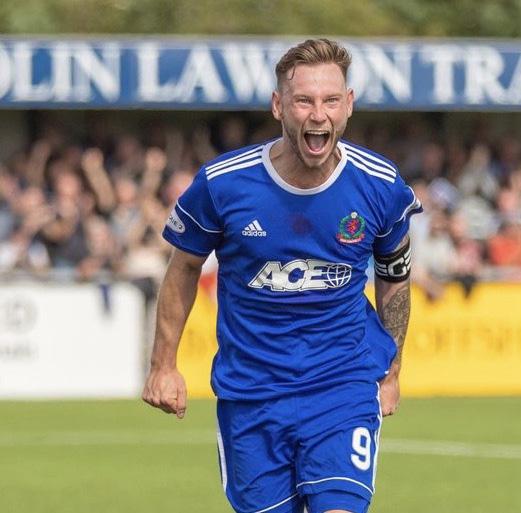
9 minute read
Club partners
Principal Club Partner
Principal Stadium Partner
Advertisement
Official Club Partners
MA RC DA RC Y
DRAPERS MENSWEAR BRAND OF THE YEAR
Manager Paul Hartley and goalscorer Rory McAllister spoke to the media after our 1-0 League One victory over Dumbarton at Balmoral Stadium.
Paul said: “I’m pleased to have claimed all three points. Dumbarton are a stuffy outfit and - despite the amount of games they have played recently - showed a lot of good energy levels.
It was hard to break them down and we didn’t work their keeper as much as I would have liked but I felt we deserved the win.”
On the claims by the Dumbarton players that Rory’s shot for the winner hadn’t crossed the line before the ball was cleared, Paul said: “It’s a goal, it was over the line. The linesman had a clear view and it was good for Rory to get the goal, I thought he was excellent.
This is the business end of the season and it’s about finding ways of winning and getting points on the board, so well done to the players for managing to do that.
It was another clean sheet too. We now have the best defensive record in the division. It’s a tough league, so well done to the players for managing to do that.”
Rory, who claimed his seventh goal of the season with his 54th minute strike, said: “The Dumbarton players were debating whether my shot was over the line but it looked like it was to me.
“It doesn’t matter now, it gave us the points and we can now look forward to what is a huge game against Falkirk next week. If we can win that one, what a chance we would have to make the end of our campaign really special.
It’s good that we are at the top end of the table competing with the full-time clubs at this stage of the season still in with a chance of going up. Having been in a team that was relegated I can assure you it’s far better than being down at the other end fighting to stay up.
It doesn’t matter how you get the wins at this stage of the season either, it’s about getting over the line. We have injuries and it gets tougher as each game passes, but you just have to keep digging deep, keep giving your best and hope you will get the rewards.
I have to mention the save Stuart McKenzie made near the end. It was vital and an excellent one and underlined the value of having a top class goalkeeper behind us. Having nothing to do for most of the game then pulling off a save like that showed just how good Stuart is. Hopefully my goal will be enough to keep me involved, it’s been a bit of a stop, start season for me really.
I feel I can get more importantly goals and enjoy playing up front with Mitch (Megginson) so we will just have to wait and see how things go next weekend.”
Steve tosh
Steve Tosh played for Cove Rangers and Falkirk during what was a long and successful career in professional football that included spells with eight senior clubs, including Aberdeen.
UnCOVEred puts Steve on the spot about his time with us and today’s League One opponents, Falkirk.
You signed a two-year contract with Cove in july 2010, what do you remember from that time?
Mainly that I was excited by the opportunity to play for what I knew was one of the best sides in the Highland League. There had been talk of me becoming part of the coaching team at Dundee but that fell through.
Cove chairman Keith Moorhouse then called out of the blue and asked if I would be interested in going there instead. I accepted right away because it was exciting to be presented with a fresh challenge at what was the latter stages of my career.
Why did you leave after just one season?
Because I discovered my body was no longer up to the task. I was 38 years old and for the first time in my life I had to combine playing and training with also working in a full-time job.
I also had to find time to be with my family down in Kirkcaldy, so it was very hard going. I tried my very best in every game for Cove, but I was just a shadow of the player I had been for most of my professional career.
It annoyed me a lot, because I was desperate to do well for Cove and for managers Kevin Tindal and Jerry O’Driscoll, who were brilliant with me.
However, I’ve never looked on myself as a mercenary looking to make whatever I could from any clubs who would have me. It was about being honest and fair to them and to Cove. It all came to a head when we played Fraserburgh in the Semis of the North of Scotland Cup.
I had made up my mind by then that I was going to retire at the end of the season. But when we lost that game 1-0, I went into the dressing room, took off my shirt and announced that was me finished, before the management duo had even been able to speak.
I then shook hands with everyone before going for a shower and that was that. I didn’t want to be taking money off Cove under false pretences.
The chairman mentioned I still had a year left in my contract but I just told him it wasn’t good for anything and just to rip it up.
I like to think doing the right thing will ensure I’m always welcome to go back to Cove anytime.
I loved being at the club because they have some really good people behind the scenes but I knew that I had come to the end of the road as far as playing at the standards I had set for myself were concerned.
Your spell at Falkirk was even briefer, what can you tell us about that?
I was delighted to accept the opportunity to join them in 2002 and expected to be there for a lot longer than it ended up being. The Bairns have always been a
club which players want to be a part of.
I was a bit surprised when the manager called me into his office to tell me Aberdeen had made an offer for me that had been accepted. That was in January 2003 and I was never going to turn that down. I will always be grateful to Steve Paterson for giving me the opportunity to move to Pittodrie.
When you played for Cove, would you ever have envisaged the day when they would be playing in the same league as Falkirk?
I have to be honest and say no. No disrespect to Cove, but back then I regarded the Highland League as on a par with the top junior ones down in Fife, where I stay, and in Ayrshire.
Cove were clearly the best run club at their level but there was no pyramid system then so no real route for them to play in the same league as the likes of Falkirk.
I was only at Allan Park for a short spell too, so was never really aware of just how ambitious Keith (Cove Chairman) and Cove were, even back then.
I’m glad they were eventually able to fulfil those ambitions because Cove have been like a breath of fresh air in the SPFL.
They have brought in a really top-level manager in Paul Hartley and have been rewarded for setting very high standards. They have also built a fantastic, modern, stadium and did brilliantly under Paul to win League Two.
It’s great to see them competing with Falkirk in the fight to get into the Championship in only their second season in the SPFL.
You also played for Gretna, a club who came into the SPFL and went to the very top before eventually going out of business. What do you remember about that period of your career?
I joined them in January 2005, after leaving Aberdeen and it ended up being one of the most successful periods of my career.
We won successive promotions all the way up to the top flight and also lost the 2006 Scottish Cup final, to Hearts.
There have been a lot unfair things written and said about what Gretna did and their owner, Brooks Mileson.
But all Brooks ever wanted was to see his team be successful and he certainly put his money where his mouth was.
Unfortunately, Brooks was also very much his own man - it was his way or the highway at Gretna.
But we knew how much he loved the club and it was great to see how happy Brooks was when we enjoyed success.
Cove, of course, are the new boys in the SPFL now. What lessons can we learn from what happened to Gretna?
The main one is to ensure any progress is made at a sensible and affordable rate. Gretna were paying full-time wages while competing in the lowest division, which was clearly unsustainable,
Brooks was too generous for his own good because he was never slow to give people healthy pay rises too whenever the team had been successful.
I had left Gretna by the time Brooks became ill (he sadly passed away in November 2008) and the club went defunct after struggling because they no longer had his backing. It was a real shame because, as I said, Brooks had good intentions but just went about things the wrong way.
A lot of clubs, not just Cove, will have looked and learned from what happened to Gretna. There will come a stage where Cove might have to consider going full-time too but I’m confident they would do that carefully - and perhaps partially to begin with, as is the case at Raith Rovers at the moment. Sticking with some part-time players would keep costs down but also ensure those who might not be keen on giving up good jobs outside football still get the chance to play for Cove.
It also pleases me to see there are guys in the Cove squad now - Stuart McKenzie, Connor Scully and Blair Yule - who were about the club when I was involved. The bulk of the squad that played in their last season in the Highland League are also still there.
It shows they are taking things step by step - and also rewarding those who have done well for the club.
The latter will ensure good players still want to go to Cove and I’m sure there are even better things to come for the club in the years ahead.

So we can keep moving forward and get back together again.






